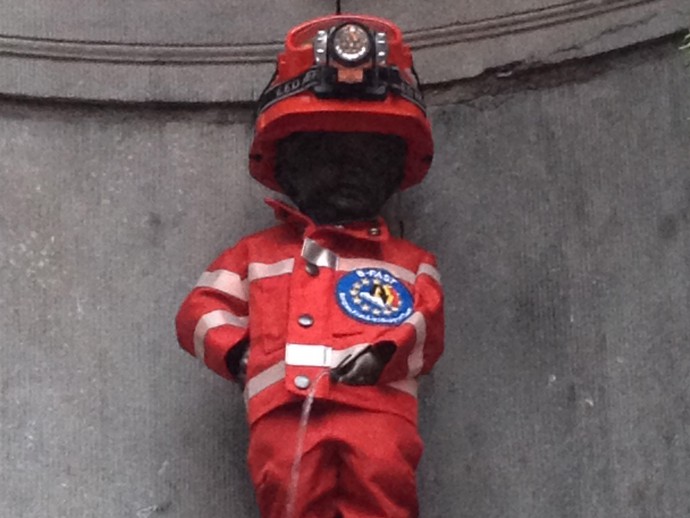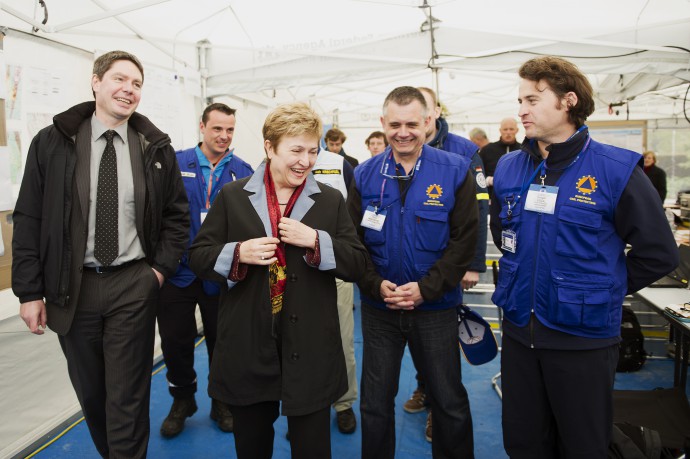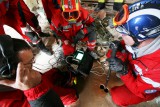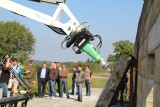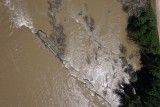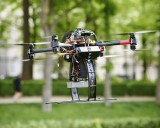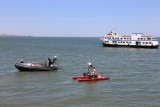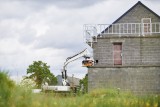The Belgian Search and Rescue Team (BFAST) celebrates 10th anniversary.
The Belgian team for immediate emergency relief, B-FAST (Belgian First Aid and Support Team), the ICARUS project reference user for Urban SAR, has recently celebrated its 10th anniversary. To commemorate the ten years since the organisation was established, the most recognisable statue in Belgium, the Manneken Pis, was dressed in the official B-FAST uniform.
B-FAST, marked its first decade of providing assistance to disaster victims across the world by organising the dressing the nation’s most famous monument, the Manneken Pis, in the official B-FAST uniform.
Dressing the statue in the uniforms associated with various organisations is a practice carried out by the Manneken Pis society to honour certain professions that provide essential services to the general public.
In addition, the international volunteer day of B-FAST[W1] was organised to celebrate the tenth anniversary of B-FAST being established as a permanent organisation offering vital support in catastrophes outside Belgian borders.
B-FAST is a crisis situation response team which participates in the international coordination of relief efforts for disasters. The operations abroad are carried out by liaising closely with international partners such as the UN, the EU and NATO.
Ten years offering immediate emergency relief
Over the last ten years, the B-FAST team has been deployed following several natural and man-made crises including fires in South America, floods in Europe, earthquakes in North Africa, the 2005 tsunami in South-East Asia, among many others.
The extent of the intervention required from B-FAST varies depending on the specific needs of the country or state facing an unexpected emergency situation that its own response capacities are unable to cope with. The interdisciplinary approach of B-FAST has been highlighted in its relief operations, ranging from the provision of medical equipment, deploying survivor search teams and victim identification teams to the installation of temporary hospitals and camps providing makeshift emergency accommodation.
In 2005, various major B-FAST interventions were undertaken; in the spring of that year, a relief operation took place in the South-East Asian regions hit by a tsunami. Victim identification teams were sent to Thailand. Furthermore, a team from B-FAST was deployed to the Indonesian province of Aceh in order to help local authorities and the UN build camps for displaced people, to provide logistical support and to bring food to the disaster-affected population. B-FAST also funded the cost of shipping equipment provided by Unicef and Doctors without Borders to Sri Lanka and Indonesia.
In January 2009, B-FAST evacuated numerous Palestinian children who were heavily injured during violent confrontations in an area south of the Gaza Strip. They were transferred to Belgium for medical care. At the same time, medical equipment was delivered to Jordan for the Palestinian refugees.
In 2010, the B-FAST team moved to Haiti, the poorest country in the western hemisphere, just one day after a severe earthquake took place, measuring a magnitude of 7 on the Richter scale. Tens of thousands of people were killed, the nation’s infrastructure was completely destroyed and the country was devastated. A team from B-FAST consisting of sixty staff (a medical intervention team with a field hospital, an Urban Search and Rescue team with rescue dogs and technicians with a water purification system) as well as a military security detachment.
The most recent mission carried out by B-FAST took place after Typhoon Haiyan hitthe Philippines leaving widespread damage across the country, causing a large number of fatalities (the latest figures for the official death toll are more than 5,000) and displacing hundreds of thousands of people. The B-FAST Coordination Council sent a team to the disaster zone. Two modules were deployed, a field hospital and a water purification system. The B-FAST rescue operation lasted for thirteen days.
These are only a sample of the numerous rescue operations[W2] carried out by the B-FAST team over their ten years of work.
Origin
In November 2000, the Belgian Minister for Foreign Affairs, the Minister for Home Affairs and the Minister for Defence outlined a proposal to the Federal Council of Ministers for the creation of an emergency relief structure to assist a country or multiple countries affected by man-made or natural disasters.
The Royal Decree of 28 February 2003 ratified this proposal through establishing a Coordinating Council for emergency relief and assistance abroad and, secondly, a permanent support structure B-FAST (Belgian First Aid and Support Team).
For further information:
[W1]Link to the article on the B-FAST website http://b-fast.be/en/event/manneken-pis-and-our-volunteers-spotlights
[W2]B-FAST Operations :http://b-fast.be/en/operations
- Login to post comments

